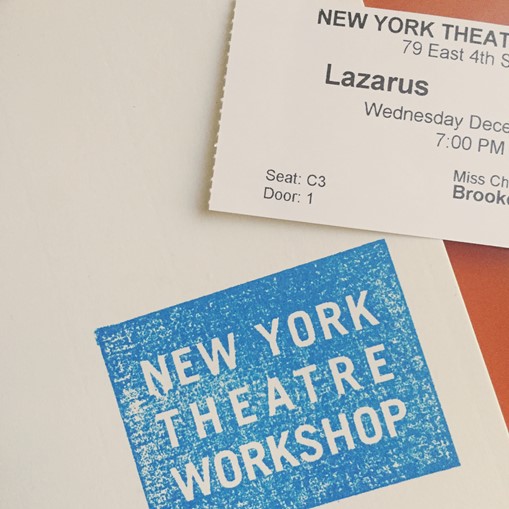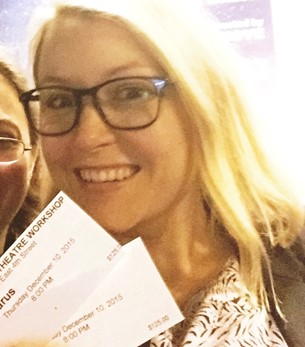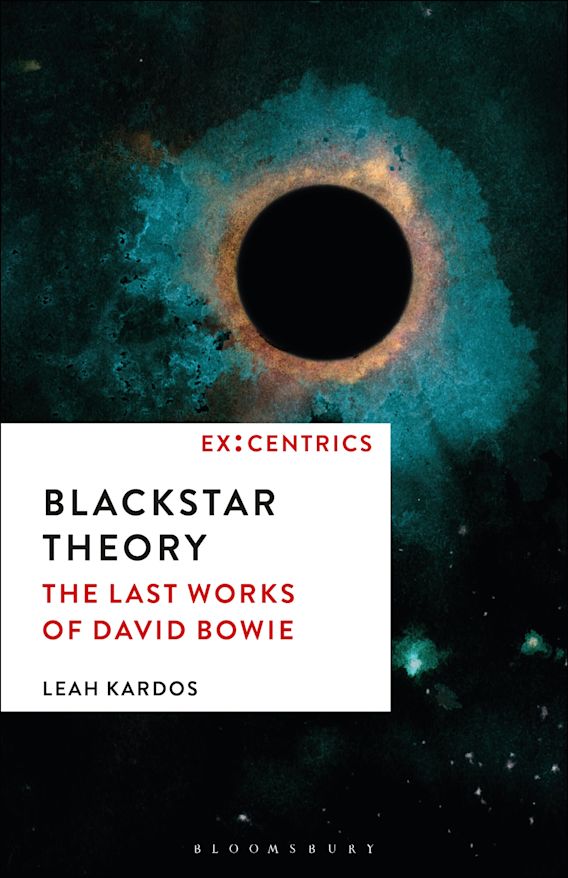I Was There – Bowie author Leah Kardos on the opening night of Lazarus
Musical was a loose continuation of The Man Who fell To Earth

Leah Kardos has just published ‘Blackstar Theory: The last works of David Bowie‘ through Bloomsbury. Here she recalls a trip to New York for the must see opening of Bowie’s musical; Lazarus in December 2015.

“When the news broke that Bowie was finally going to stage a musical, the thing he’d been trying all his whole career to do (from the early unfinished rock opera Ernie Johnson, his failed attempt at a musical version of Ziggy Stardust and the Spiders from Mars and Orwell’s Nineteen Eighty Four, the mooted operatic staging of 1. Outside and more besides), I knew I absolutely had to see it. A few of the old BowieNet crew who I’m still in touch with on socials hatched a plan to travel to NYC together to see Lazarus on the opening night at the New York Theatre Workshop. ‘Blackstar’ had just come out as a single, with the beautifully dense and dark video co-directed by Johan Renck. I was hyped – all indications seem to suggest Bowie was back in the purple patch. Button Eyes? Fuck yeah, gimme that.
I didn’t know much about the show’s plot going in, only that it was meant to be a continuation of the story from ‘The Man Who Fell to Earth’, the novel by Walter Tevis from 1963 that was adapted to film by Nicolas Roeg in 1976 in which Bowie played the starring role. I knew the book was co-written with Irish playwright Enda Walsh, of ‘Disco Pigs’ and ‘Once’ fame, directed by avant-garde visionary Ivo van Hove, and would star Michael C Hall (Dexter!) in the ‘Bowie’ role as the blinded, addicted, doomed alien visitor stuck on earth, Thomas Jerome Newton.
‘Lazarus’ is an intense theatrical piece, one that seems to deliberately disorient and test its audience. It was grubby and messy – bloodstains, spittle and spilled milk, burst black balloons. The plot swings between pantomime humour and brutality, hazy dream logic and moments of shocking realism, stopping every now and then for a song-and-dance version of a classic Bowie tune. As we left the venue after that first night we were completely discombobulated. Opinions were split; fans of Bowie shows had come expecting to experience something like a gig, theatre buffs had come expecting a coherent narrative experience. We huddled together comparing our notes, trying to process and piece together what we had just seen. Something dark and confusing, heartbreaking and hard to take in. “Wow, a bit DEATH-y, huh!”.
I had to see it again while I was in town; my best friend paid through the nose for ticket returns and we went again the following night. There was something compelling, and quite troubling, about the way Bowie’s identity was so self-consciously entangled with the fictional extra-terrestrial on his deathbed/rocket ship-shaped-coffin.

The setting in a New York penthouse with a view of 2nd Avenue, the fourteen year old Girl (played by Sophia Ann Caruso). In the play, Thomas wants and needs to die, but he can’t do this until he has successfully resisted temptation, confronted his own shadow and severed his attachment to the spectral image of his lost daughter. These details felt strangely specific when I saw the show in New York; they made a lot more sense after he died some four weeks later. When I saw it again during its run in London in 2017, it felt like a different show.
I knew I wanted to write about Lazarus, and really go deep and analytical on it. It ends up taking up a large chunk of my book, the entire middle section. The more I thought about and studied it, the more complexity, resonance and symmetry seemed to surface. To describe it on the page it comes across as dark and difficult, and the atmosphere around it – being a work about dying by a terminally ill artist – might spook some. But what I see is something really life-affirming, generous and beautiful. Bowie staged his public dying with Lazarus and Blackstar, binding up and completing the myths, legacies and narrative through-lines his career with a pair of connected, final pieces. They celebrate the messy chaos of life, they revel in profound nowness, and the transcendence and beauty of limits. Lazarus in particular draws serious power from the death of its author, and through the repetitive, visceral, shared experience of live theatre, it creates a space for fans to share in their own grief and healing.”

‘Blackstar Theory: The last works of David Bowie’ by Leah Kardos is out now – for more info visit the Bloomsbury website.
<book cover>